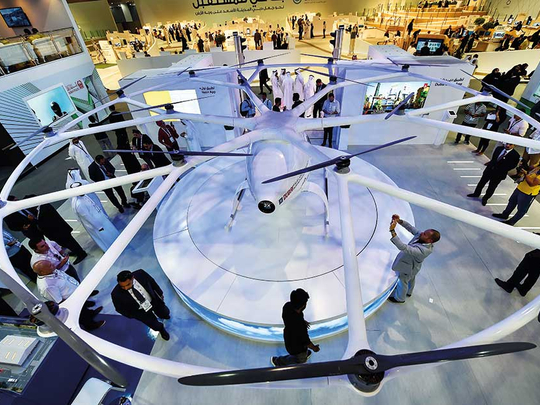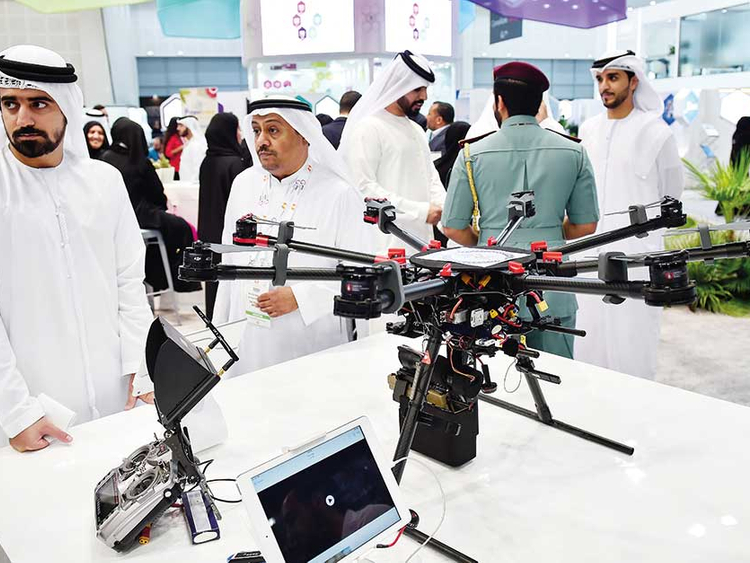
Dubai: The drones market in the UAE is currently among the most advanced and developed in the Middle East, fuelled by progressive development and implementation of regulation in Dubai along with programmes like the “Drones for Good” award, an industry expert told Gulf News.
Akash Balachandran, research analyst at IDC Middle East and Africa, said that one of the leading use cases for drones has been for hobbyist and photography purposes, with the release of compact (but still feature heavy) unmanned aerial vehicle’s like the DJI’s popular Mavic Pro and Spark.
“Consumers see it as the perfect tool for travel photography. Along with that, the Dubai Civil Aviation Authority has been issuing hobbyist licences, which has undoubtedly helped boost consumer confidence in the product,” he said.
Moreover, he said that there has certainly been a burgeoning community of drone racers in Dubai. Beyond which, they have seen use in aviaries (falcon training), surveillance and monitoring and in search and rescue.
Sukhdev Singh, vice-president at market research and analysis services provider AMRB, said the market will reach critical mass and adoption rate will increase when proper regulations are in place and the drone market matures. Drone-mounted sensors can be used to capture an impressive array of data, paving the way for increased digitalisation of industrial processes.
Singh said that drones are currently used for media monitoring and they have a significant advantage in terms of precision, convenience, and cost over more traditional solutions such as satellites and helicopters.
On a regional scale, Balachandran said there has been a lot of demand in the process manufacturing industry in use cases like pipeline inspection. There has been demand in the resource industry as well for livestock monitoring and with research being done in dispensing pesticides and fertilisers.
“Robust growth is expected in use cases related to inventory management, and in the utilities, oil and gas industries in the Middle East and Africa with drones being used for monitoring and inspection purposes.
“Drones will also be rapidly implemented in use cases related to precision mapping as well as in agriculture, not just for monitoring, but to also assess crop health, field drainage and irrigation requirements.
According to a recent report by consulting firm Strategy&, the market for drones in the Gulf Cooperation Council is expected to reach $1.5 billion by 2022.
“Airspace regulators are aware of the growth of drone technology, and are searching for balance between public safety and economic efficiency. Progress of drone legislation and regulation in the GCC is uneven, and therefore the main purpose of the drone traffic control centre is to serve as a centralised authority to manage drone traffic and ensure regulation is followed,” said Ramzi Khoury, principal with Strategy& Middle East.
Balachandran said that drones are currently being researched to extend the range of cellular reception in the case of emergencies (for instance if you’re lost in the desert), and allow for rescue services to be able to find and reach your location.













